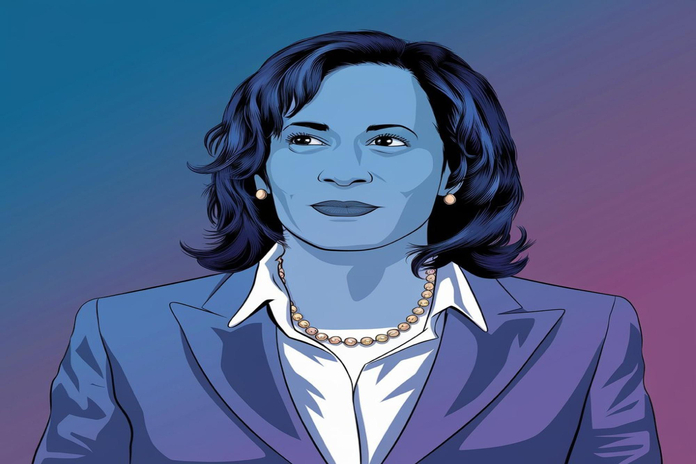
In the aftermath of the 2024 election, the cryptocurrency industry has solidified itself as a key player in the U.S. political arena. With the GOP now controlling the presidency and the Senate, crypto PACs (Political Action Committees) have successfully backed candidates who support crypto regulation reform. The election results reveal a notable gap in the Democrats‘ approach to crypto regulation, highlighting missed opportunities that could have given the party an edge in managing the rapidly expanding blockchain and digital asset sectors.
Crypto’s Call for Regulatory Clarity
For years, leaders in the crypto industry have been pushing for clear, fair regulations. While industry insiders held bipartisan discussions and encouraged transparency, many Democratic leaders dismissed digital assets as risky, associating them with scams or criminal activity. This resistance hindered efforts to create a balanced crypto regulatory framework that would foster innovation and protect consumers.
Crypto advocates hoped that Democrats would consider the broader economic benefits of blockchain, but instead, the Democrats’ stance left a vacuum in policy. This gap allowed conservative-backed candidates, especially those aligned with the pro-crypto movement, to emerge as champions of crypto innovation, promising a friendlier regulatory environment.
Crypto’s Shift to the GOP
As Democrats held back, crypto leaders found support in MAGA-aligned GOP candidates, who endorsed a more hands-off approach to financial regulation. With a GOP-controlled Congress, the industry is now positioned to push for reforms like FIT21, a proposed policy that could move crypto oversight from the Securities and Exchange Commission (SEC) to the Commodity Futures Trading Commission (CFTC). This shift would reduce SEC’s stringent controls over digital assets, a move that many crypto companies believe will help the industry flourish.
However, while a GOP-led administration may favor deregulation, it also comes with potential downsides. The GOP’s Project 2025, a conservative blueprint that promotes executive power consolidation, could have unintended impacts on individual rights. With Trump and his supporters pushing a robust deregulatory agenda, financial freedom might expand for crypto, but at the possible expense of other freedoms.
The Impact on Marginalized Communities
One of the most significant concerns about the Democrats’ missed opportunity in crypto regulation is its impact on marginalized communities, particularly Black Americans. For many Black investors, crypto has been a gateway to financial independence, allowing them to bypass traditional financial barriers. Studies reveal that around 23% of Black Americans own cryptocurrency, a higher percentage than other demographic groups.
Crypto offers an accessible entry point for these communities to begin investing and building wealth. However, the GOP’s approach to financial regulation and its stance on social policies could undermine the progress these communities have made. Project 2025, for instance, promotes restrictive social policies that may clash with the values of diverse crypto users who view digital assets as tools for empowerment.
Crypto PACs and Their Rising Influence
The 2024 election cycle saw crypto PACs like Fairshake, Defend American Jobs, and Protect Progress investing millions to support pro-crypto candidates. These PACs, backed by major crypto players like Coinbase (NASDAQ:COIN) and Ripple Labs, channeled funds to candidates who promised to create a favorable regulatory landscape for digital assets. Fairshake alone became the largest single-issue PAC in history, spending over $40 million on candidates like Bernie Moreno, who unseated Democratic incumbent Sherrod Brown in Ohio.
Such investments underscore the crypto industry’s dedication to influencing policy. However, some observers worry that massive spending on political campaigns could drown out the voices of communities that depend on crypto for financial freedom, shifting power to large corporations and diluting crypto’s promise as a democratizing force.
A Missed Opportunity for the Democrats
The Democrats’ reluctance to engage meaningfully with the crypto industry has not only cost them a foothold in financial innovation but also a chance to foster inclusion. Surveys by organizations like Paradigm show that Black Americans are more likely to view crypto as a tool to bridge the racial wealth gap. Democrats could have leveraged this sentiment, aligning with crypto advocates to support policies that balance innovation with protection.
By dismissing crypto, the Democrats have given up an opportunity to shape a regulatory framework that aligns with their values of fairness and inclusion. Now, under a GOP-led administration, crypto may see a friendlier regulatory climate, but it remains to be seen how much of this will benefit the communities who initially found financial hope in digital assets.
What Lies Ahead for Crypto and the Democrats
With Trump back in office and a crypto-supportive Congress, Democrats must reassess their stance if they want to regain influence over this sector. Crypto PACs have demonstrated their power, showing that financial empowerment can be a persuasive political tool. To stay relevant, Democrats may need to approach crypto with an open mind, engaging with industry leaders to create policies that foster innovation without sacrificing consumer protection.
Crypto’s journey in the U.S. political landscape is far from over. As Project 2025 gains momentum, the very communities that turned to crypto for financial freedom may face new challenges under the GOP’s conservative agenda. The question now is whether the crypto industry will rise to fulfill its promise of financial inclusion or prioritize corporate gains.
For Democrats, the lesson is clear: innovation cannot be ignored. By sidelining crypto, the party has missed a crucial moment in economic transformation—one with the potential to empower millions.
Featured Image: Freepik


 1 week ago
1
1 week ago
1 









 Bengali (Bangladesh) ·
Bengali (Bangladesh) ·  English (United States) ·
English (United States) ·